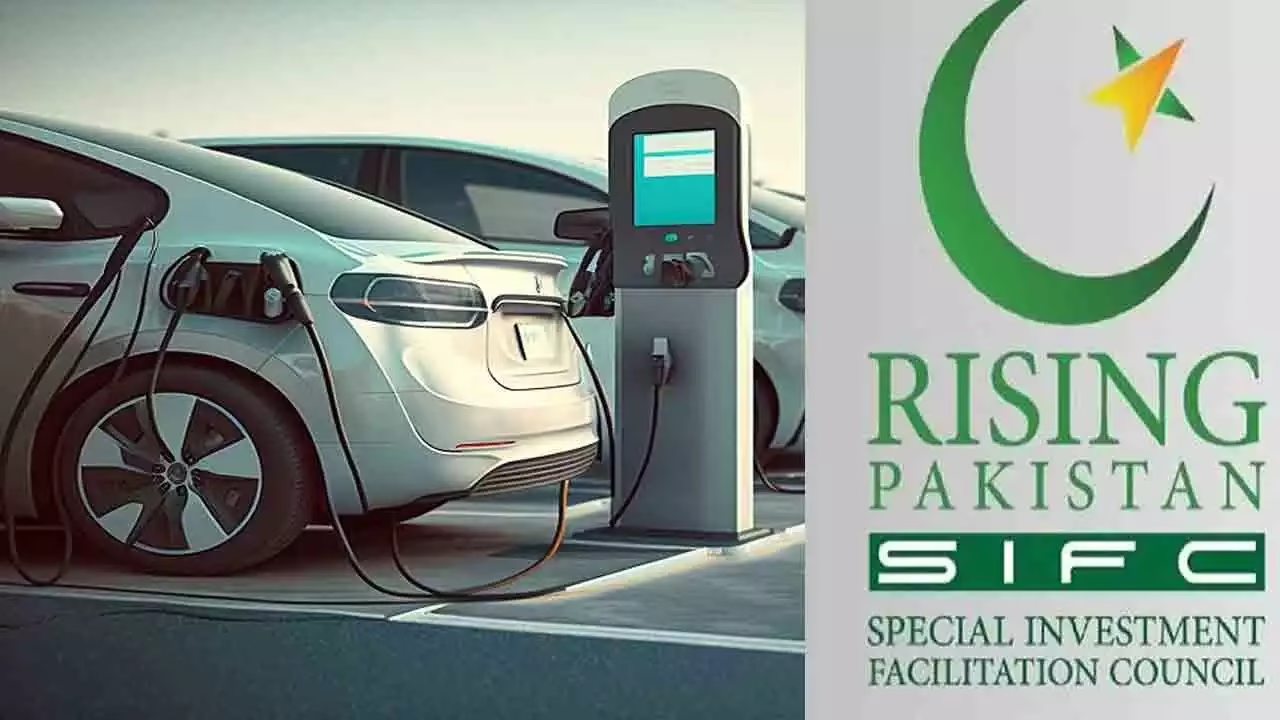The implementation of Pakistan’s Electric Vehicle (EV) policy, in collaboration with the Special Investment Facilitation Council (SIFC), has marked a transformative step towards eco-friendly transportation. This ambitious initiative promises to revolutionize the automotive industry, reduce environmental impact, and enhance the country’s energy sustainability. With plans to establish a robust EV charging infrastructure and attract significant foreign investments, Pakistan is poised to lead the way in sustainable mobility in the region.
Key Developments in Pakistan’s EV Policy
Establishment of 10,000 EV Charging Stations by 2030
The Ministry of Industries and Production has announced a milestone goal of setting up 10,000 EV charging stations nationwide by 2030. This move is a cornerstone of the EV policy, ensuring widespread accessibility to charging facilities and encouraging the adoption of electric vehicles across urban and rural areas.
Reduced Electricity Rates for EV Charging Stations
To make EV adoption more viable, the government has reduced electricity tariffs for EV charging stations by 44%. This significant cut in costs is expected to make charging more affordable for consumers, boosting confidence in EVs as a cost-effective alternative to traditional fuel-powered vehicles.
$90 Million Allocated for Charging Infrastructure
In a bid to create a robust EV ecosystem, the government has allocated $90 million specifically for the development of EV charging infrastructure. This funding will support the installation of state-of-the-art charging stations, ensuring seamless connectivity and reliability for EV users.
Foreign Investments Driving EV Expansion
Chinese ADM Group’s $250 Million EV Factory
The Chinese company ADM Group has announced plans to establish an EV manufacturing facility in Pakistan, with an investment of $250 million. This factory will not only create thousands of jobs but also boost local EV production, reducing reliance on imports and fostering technological innovation within the country.
Advanced EV Capabilities
The new generation of electric vehicles being introduced will feature advanced capabilities, including a range of up to 300 kilometers on a single charge. These developments align with global standards, ensuring Pakistani consumers benefit from cutting-edge EV technology.
Environmental and Economic Benefits of EV Adoption
Reduction in Carbon Emissions
The widespread adoption of EVs is expected to play a critical role in improving Pakistan’s environmental balance. By replacing fuel-powered vehicles, EVs will significantly cut carbon emissions, contributing to cleaner air and a healthier environment.
Decreasing Fuel Imports
With the transition to EVs, Pakistan aims to reduce its dependency on imported fuel. This shift will save billions of dollars annually, strengthening the country’s foreign exchange reserves and reducing economic vulnerabilities tied to global oil price fluctuations.
Global Sustainability Goals
The EV policy aligns with international sustainability initiatives, demonstrating Pakistan’s commitment to combatting climate change. This step reinforces the nation’s role in global efforts to promote green energy solutions.
SIFC’s Role in Facilitating the EV Policy
The Special Investment Facilitation Council (SIFC) has been instrumental in ensuring the smooth implementation of the EV policy. By streamlining regulatory frameworks and encouraging public-private partnerships, SIFC has fostered an environment conducive to sustainable development.
Policy Reforms Supporting EV Adoption
The government has introduced new regulations aimed at simplifying the installation and operation of EV charging infrastructure. These reforms are expected to attract further investments and accelerate the transition to electric mobility.
A Cleaner, Greener Future for Pakistan
The EV policy represents a paradigm shift in Pakistan’s approach to transportation and environmental sustainability. By integrating modern technology, reducing costs, and attracting foreign investments, the country is well on its way to creating a clean, green, and sustainable future.
Public Awareness and Adoption
The government and private sector must now focus on increasing public awareness about the benefits of EVs. Educational campaigns and incentives, such as tax reductions on EV purchases, will encourage consumers to embrace this new era of transportation.
Pakistan’s EV policy is more than just a technological upgrade; it’s a commitment to a sustainable and prosperous future. With reduced electricity rates, substantial investments in infrastructure, and the establishment of local EV manufacturing, the country is paving the way for an environmentally friendly revolution. As Pakistan takes these strides, it sets an example for other developing nations to follow in their pursuit of a cleaner and greener world.



